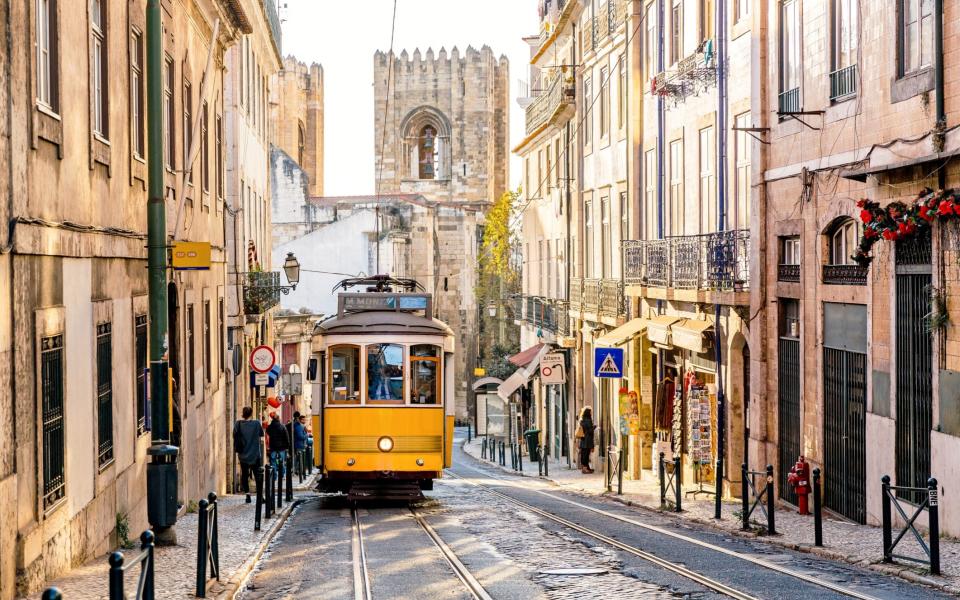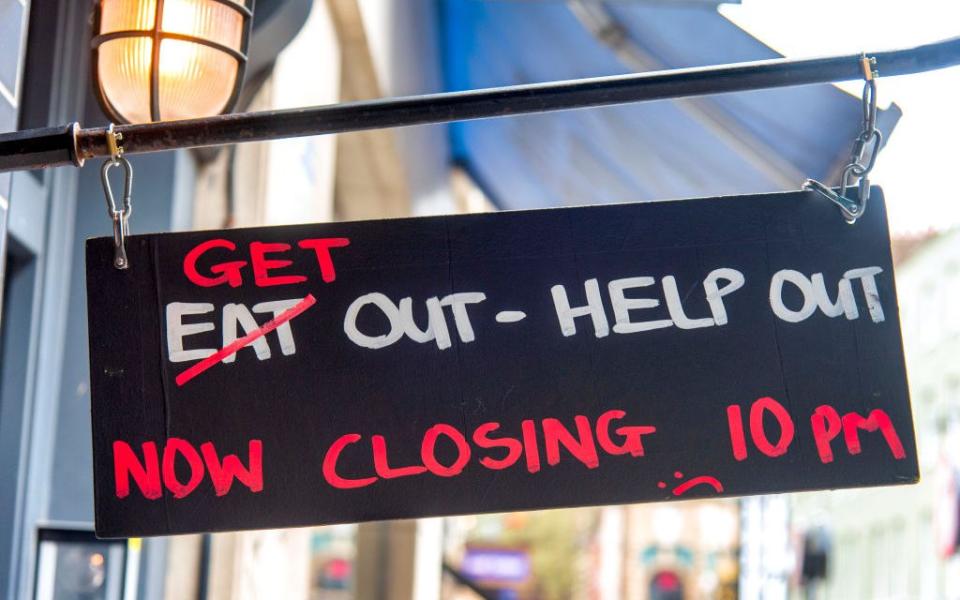The alarming – and completely pointless – rise of Covid booze bans

For centuries the ‘demon drink’ has been blamed for society’s ills, often vocally and by public figures. Curiously, the Covid crisis has given fresh impetus to the anti-boozing brigade.
As infections have soared across Europe, many governments, including the UK’s, have scrambled to crack down – with the sale and consumption of alcohol often in the crosshairs. It’s as if we’ve been transported back to the 19th century.
In September, with cases rising, the Government’s response was to implement a 10pm curfew on all pubs, bars and restaurants in England – a terrible scenario for venues that rely on night-time trade. But even harsher measures have been seen elsewhere.
Across the border in Scotland, a country with a rich drinking culture, all pubs and restaurants now have to close at 6pm. Post-work pints are a thing of the past. No booze can be served indoors at all, turning once bustling pubs into depressing (and deserted) temperance bars. A ban on the consumption of alcohol on Scottish trains is also in the works.
Prior to the second lockdown in Northern Ireland, alcohol could only be served indoors, with food, and while seated. On a recent visit, I saw a number of innovative workarounds, from bowls of stew left untouched on tables, to menus from the local fish and chip shop passed around tables in bars. Venues caught flouting the rules were handed new ‘prohibition notices’ forcing them to close, which sounds more the stuff of themed parties than real police business.
Internationally, some countries have gone even further. South Africa imposed two complete bans on the sale of alcohol this year, while parts of Thailand and Greenland have made similar moves. Even local authorities in the French department of Aisne tried to put an alcohol ban in place back in March – zut alors! – but had to U-turn just 24 hours later.
Curfews in Europe are also popping up. In Portugal, the sale of alcohol without food is forbidden after 8pm, and it cannot be sold in shops at all after that time. Booze bans and bar closures have also been introduced in areas of Spain.
A relic of 1920s America, prohibition appears to once again be the cocktail of the day.
Why the focus on alcohol? Some will say that, after imbibing it, social distancing has a tendency to go out the window. There is some logic in that. Evidence would suggest, however, that – at best – blindly cracking down on alcohol, and by extension bars and pubs, is completely pointless (at worst, it could actually be exacerbating the Covid problem – not to mention pushing businesses to the brink).
Weeks after the UK’s own curfew was put in place, cases are still rising – and now even more restrictions are being placed on the hospitality sector thanks to the tier system. But hospitality venues are not a major factor when it comes to the spread of coronavirus, with Public Health England data blaming them for just five per cent of transmissions. Workplaces, schools, universities and care homes are far bigger players – so why is boozing under fire, and pubs and restaurants being thrown under the bus?
In some countries, businesses are pushing back. Recently in Berlin, a court overturned a 11pm hospitality curfew after evidence was presented proving most cases came from other settings and it “was not apparent” that such a measure would do the slightest bit of good. In Berlin’s case, private gatherings of family and friends, as well as large factories, have been major culprits.

Beyond the statistics, curfews on bars and bans on alcohol sales will never truly work, for the same reason American prohibition failed: people won’t stop drinking, they will simply find somewhere else to do it. As we have seen in Britain, curfews inevitably mean people congregate on the streets at closing time and then pack onto the Tube, while closures encourage gatherings in less ‘Covid-safe’ venues such as private homes. You can’t stop socialising altogether.
I came to Portugal a week ago, and have seen how the 8pm curfew has simply pushed drinkers elsewhere. “Oh, it’s all about private parties now,” a local told me in a cafe the other day, “just be sure to buy your drinks from the shop on time!” I’ve not attended any myself, but have heard the sonorous sounds of house parties in properties below our Lisbon flat – they’ve even asked to borrow glasses.
I did get caught out by the rule on the first night when trying to buy a bottle of port from the local supermarket – only to be told, apologetically, that it was 8:02pm. The following evening I ended up at a nearby kiosk café after the cut-off time, and the server said I would need to buy a sandwich with any drink I ordered – stuffed from a late lunch, I wrapped it in a paper napkin and ate it the next day.
England isn’t much different – illegal university parties have made headlines recently, and I’ve been invited to a few ‘secret parties’ by club promoters. It is a glimpse into the first stirrings of a new underworld of Covid ‘speakeasies’ and evidence that these rules will never work.
At least the controlled environs of bars are subject to intense cleaning and managed by staff well versed in coaxing tipsy punters to follow the rules. At a private party, anything goes.

This is something the food and drink industry has been shouting from the rafters for weeks, with hard stats (and video footage) to back it up. Why then, are governments continuing to go down the prohibition route?
“Alcohol is seen as an easy target by politicians all over the globe, and that is being borne out in their responses to Covid,” said Tom Lord, a hospitality consultant and the founder of Hospitality Gin. “Blaming the spread on the idea of young people partying draws attention away from the Government’s catastrophic failure to control infection rates in care homes.”
Lord, a key figure behind the UK’s ‘Cancel the Curfew’ campaign, spoke of how the recent curfew was “based on anecdotal evidence at best, and rooted in the Government’s desire to appear pro-active.” He pointed out continued calls from the campaign to see the scientific evidence behind the measures. “We are still waiting,” he said.
The idea that by curbing the British public’s time in bars, this will in turn curb the country’s rate of infection (because they’ll be drinking less) is inherently flawed, or as Lord acerbically put it, “insulting to the general public’s intelligence.”
Meanwhile, the Government has ruled out closing offices, universities, or schools, despite data highlighting these sectors as drivers of transmission, ostensibly to preserve the economy. But, the hospitality industry is just as much part of the economy. When you take into account the wider ecosystem of taxis, farmers and wholesalers, the industry supports over six million jobs. Are those who work behind bars, or in the wider drinks industry, less deserving of government support due to their relation to alcohol?
Lord believes it is “unlikely” that the government will follow other countries “who have taken their scapegoating to the next level” by banning alcohol entirely, largely due to the massive amount of cash alcohol duty provides – the Treasury collected £12 billion last year.
But as cases rise, who knows when or how the next blow will strike our browbeaten booze industry.

